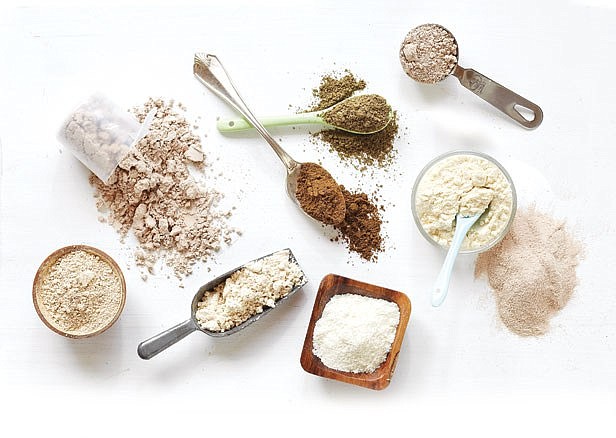- December 26, 2024
-
-
Loading

Loading

There are shelves of powders and potions out there directed at fitness freaks. So where do you start? The key to finding the right protein powder is to ask the correct questions: Is it organic and free of pesticides? Is it GMO free? How is it processed and does the processing take away from the natural quality of vitamins and minerals? Does it contain artificial sugars and sweeteners? This dizzying array of variables shows how important it is to know what you're buying, where it's from and how it's produced.
Researching the world of protein powders for months has brought forth one conclusion: it’s unbelievable how much garbage is put into them that people don't even realize. Here are some of the findings.
“Cadmium raises special concern because it accumulates in and can damage the kidneys, the same organs that can be damaged by excessive protein consumption. And it can take 20 years for the body to eliminate even half the cadmium absorbed today. This is a highly toxic metal, and while there are some cases where decisions have to be weighed against relative risks, accepting that you have to be exposed to any cadmia at all in your protein drink after your workout is definitely not one of them."
Kathy Burns, a toxicology consultant for state and federal government agencies, agrees. "When these toxic heavy metals are combined in a product that is marketed for daily use, it raises serious public health concerns, especially for pregnant women, children and young adults."
What about GMOs (genetically modified organisms)? Is this something we want in our protein powder? Even after widespread marketing fears and misinformation concerning GMOs, the answer is not so clear. Although they've been around for decades, there's never been one scientific study confirming any harmful health effects. If you choose to avoid GMOs, make sure the protein powder label states that it is "non-GMO certified."
As far as “organic” goes, things are also not so cut and dry. Most foods are grown using pesticides to elevate a myriad crop issues. The question is the degree to which the pesticides alter the crops internally and when consumed, harm humans. On this topic, the research is not conclusive. Pesticides can be considered harmful and potentially toxic with longterm exposure causing possible birth defects, nerve damage and even cancer. Some say no amount is safe, while on the other hand it can be said that prudent use and thorough cleaning of crops before processing significantly diminishes any potential harm on humans. At the end of the day, if you're afraid of the pesticide issue, choose a protein power that is "certified organic." You will pay more and possibly not gain any benefit, but peace of mind has a cost.
Research shows that most protein powders are a total scam. Manufacturers will blend in “cheap” proteins or give their products fancy sounding ingredients like "whey protein concentrate." Other times it’s hard to understand the labeling, and the fillers are hidden and blended to the point where consumers have no idea what the formula is. Still other companies assume you'll never calculate the protein value, and they make disingenuous claims. Others take it a step further by adding amino acids to boost up the protein value. To keep it simple, buy powders using the words “whey protein isolate.”
This article is not intended to bad mouth the protein supplement industry — there are some really great products out on the market. Consumers just need to be aware of what they're buying and to know the difference between hype and reality.
So read your labels carefully, and for goodness sake, don’t spend a serious chunk of money on protein powder products that are more for publicity than actually for your health.
To read more from Kourtney, visit her website at kourtleefit.com.